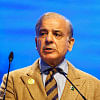May peace be restored in Pakistan

After a dramatic – and violent – unfolding of events over the past three days, the Supreme Court of Pakistan has termed the arrest of PTI chief Imran Khan on the premises of the Islamabad High Court "invalid and unlawful". The three-member bench also directed the National Accountability Bureau (NAB) and police to ensure "foolproof" security to the former PM until his production before the court. The move by the SC – which by its own admission is an "extraordinary" one, not extended to other political leaders before Khan – is certainly a welcome one, and highlights the independence that the judiciary still enjoys in Pakistan, a country where major state institutions have been weakened by severe politicisation over past decades. We hope that the ruling will calm the outraged public and restore peace in a volatile Pakistan.
Imran Khan, who has been charged in more than 100 cases – including corruption, blasphemy, and sedition – since being ousted from office, was arrested in connection to a corruption case on court premises on Tuesday, where he had gone to seek protective bail against an arrest. In the week prior to the arrest, Khan had doubled down on emphasising his allegation that a senior serving military officer had orchestrated a plot to assassinate him. The timing of the arrest, as well as the manner in which Khan was arrested, suggests that it was done to intimidate and harass him. After all, as pointed out by Herald editor Badar Alam, it is hardly the first time in Pakistan's political history that the NAB, which is conducting the investigation of corruption, has been used to persecute political opponents.
Under the circumstances, we echo the sentiments of the Chief Justice of Pakistan, who observed that it is of paramount importance that peace is restored and constitutional machineries are allowed to function smoothly. He also called upon Imran Khan to condemn the violence following his arrest and pursue a dialogue with his opponents "whom he may not like but they are a reality" to restore confidence among the people.
What's equally concerning as the witch hunt against Khan is the violence that has broken out across Pakistan following his arrest. PTI supporters stormed the streets in protest in Islamabad, Karachi, Lahore, Peshawar, and other cities, leading to clashes with security forces; there were attacks on military installations, including on the official residence of the Lahore corps commander. The authorities restricted access to social media platforms as well as mobile broadband, deployed the army in two provinces and arrested thousands of protestors across the country. Under the circumstances, we echo the sentiments of the Chief Justice of Pakistan, who observed that it is of paramount importance that peace is restored and constitutional machineries are allowed to function smoothly. He also called upon Imran Khan to condemn the violence following his arrest and pursue a dialogue with his opponents "whom he may not like but they are a reality" to restore confidence among the people.
We, too, hope that good sense will prevail among all and that Pakistan, as a nation, will move towards a free and fair election, without devolving into further chaos. The army's intervention and interference, which have for far too long been deciding factors of Pakistan's political fate, must not be allowed to override the democratic process.


 For all latest news, follow The Daily Star's Google News channel.
For all latest news, follow The Daily Star's Google News channel. 









Comments